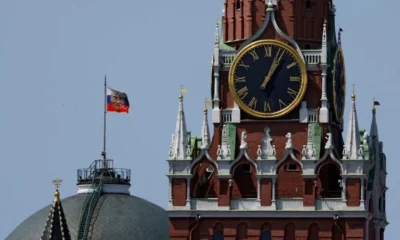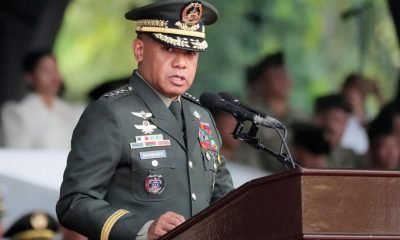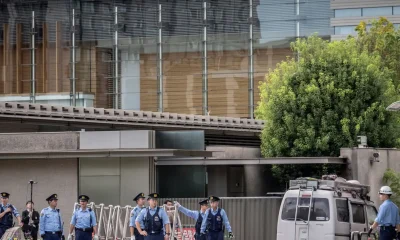Investing
Japan’s Central Bank to Remain Undeterred on Rate Hikes Despite LDP’s Electoral Shock


ASSESSMENTS
UAE Eyes Major Stake in US AI Sector with $25 Billion Investment
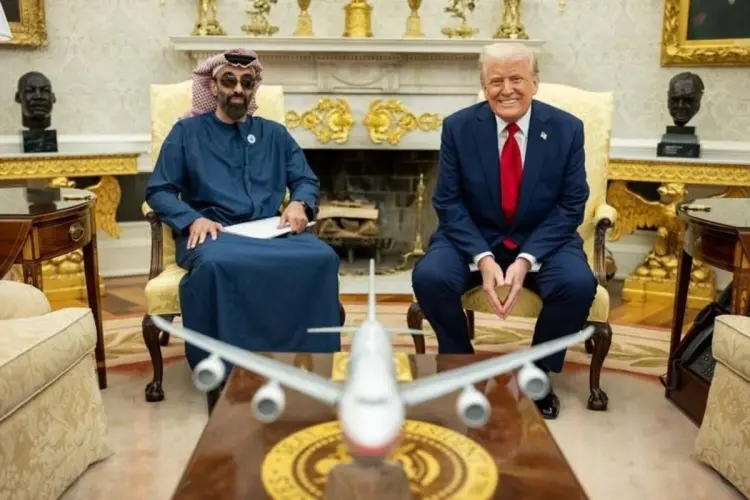
The recent announcement of the United Arab Emirates (UAE) to significantly ramp up its artificial intelligence (AI) investments in the United States marks a pivotal shift in both technological and geopolitical landscapes. This development is underscored by Sheikh Tahnoon bin Zayed’s visit to Washington, signaling a robust commitment to advancing AI capabilities through strategic international collaborations.
The UAE’s decision to invest $25 billion in the US AI sector is not just an economic maneuver but a strategic positioning within the global tech landscape. This investment could catalyze significant advancements in AI technologies, potentially positioning the US even more prominently as a leader in the AI field. For the UAE, this move diversifies its economic dependencies away from oil and toward technology, aligning with its broader economic transformation goals.
Sheikh Tahnoon’s role in managing two sovereign wealth funds and his direct involvement in this substantial investment highlight the UAE’s strategic pivot towards the US. This realignment might be indicative of a shift in global alliances, with the UAE positioning itself closer to Washington’s sphere of influence, distancing itself from China’s technological ecosystem. This could realign technology sourcing and security alliances in favor of the US, potentially altering the balance in tech dominance between the US and China.
By securing access to cutting-edge American AI chips, the UAE could leapfrog in developing high-tech industries, from autonomous vehicles to smart city infrastructure, which are pivotal for its future economic landscape. For the US, granting the UAE access to advanced AI technologies ensures a partner in technological development and potentially a diplomatic ally in regional conflicts and broader geopolitical strategies.
Predictions and Outcomes
The infusion of capital and resources from the UAE is likely to accelerate innovation in AI within the US, leading to faster development of new technologies and AI applications. This could spur further investments in AI research and development, fostering a cycle of innovation and investment that benefits the global AI landscape.
As the UAE aligns more closely with the US in technology and security, there may be shifts in how Middle Eastern politics are navigated, particularly concerning relations with China and Russia. The US might leverage this partnership to strengthen its influence in the Middle East, countering China’s Belt and Road initiatives in the region.
With increased investment in AI, both nations will need to address the ethical implications of AI technology, including privacy concerns, surveillance, and the potential for AI in military applications. This partnership could lead to a harmonization of AI governance standards between the UAE and the US, influencing global norms and practices in AI ethics and regulation.
Overall, this deepened partnership between the UAE and the US in AI could herald a new era of technological progress and geopolitical cooperation, reshaping economic and strategic priorities on a global scale. As AI continues to be a critical element of national power, the ripple effects of this partnership will likely be observed across various sectors and regions.
BRICS
Unlocking Somaliland: A New Dawn for Investment and Opportunity
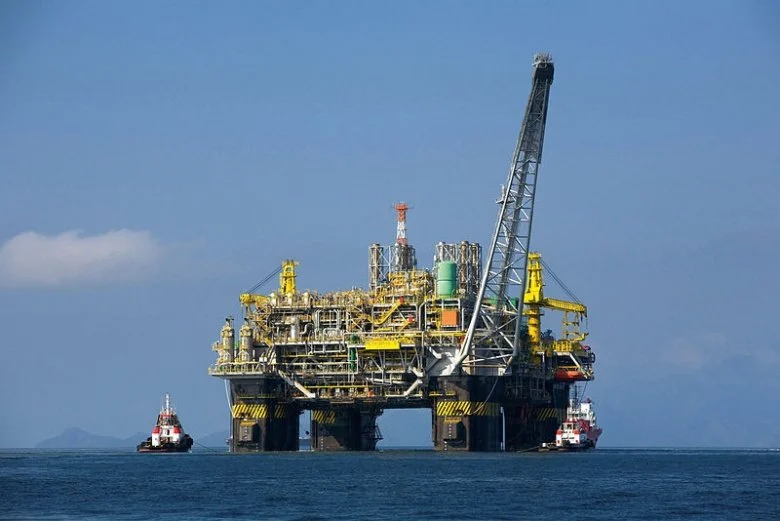
Somaliland is emerging as a beacon of potential, rich in untapped resources and poised for a transformative future. With its strategic location, stable governance, and a wealth of natural assets, this region is quickly becoming an attractive destination for foreign investors. As President Abdirahman Mohamed Abdullahi Irro leads the charge for Somaliland’s recognition on the global stage, the time is ripe for international investors, particularly from dynamic economies like USA, to engage with this promising territory.
Somaliland’s landscape is dotted with significant reserves of oil and various minerals, including gypsum, limestone, salt, and iron ore. The promise of these natural resources presents a unique opportunity to catalyze economic growth and job creation. By investing in sustainable extraction technologies, foreign investors can not only harness these resources but also contribute to the development of local economies, laying the groundwork for a prosperous future.
Situated along the Gulf of Aden, Somaliland enjoys a prime geographic advantage, serving as a natural hub for trade that connects Africa with the Middle East and beyond. This strategic position makes it an ideal location for logistics and commerce, further enhancing its appeal to potential investors. Coupled with a youthful population eager to adapt and innovate, Somaliland offers a workforce that is primed to meet the demands of various sectors, including technology and agriculture.
To effectively attract foreign investment, Somaliland must embrace the power of storytelling—crafting a narrative that resonates with prospective investors. This story should highlight the region’s vision for growth, showcasing local entrepreneurs who have thrived against all odds. By sharing these success stories, Somaliland can illustrate its resilience and potential, inviting investors to join in its journey.
The cultural richness of Somaliland is another key facet of this narrative. The warmth and hospitality of its people are a vital part of the experience, making the region an inviting place for businesses to establish roots and foster meaningful connections. As Somaliland strives for international recognition, it is crucial to underline the political stability and governance structures that have allowed it to maintain peace and security, making it a more attractive locale for investment.
To further bolster interest from global investors, Somaliland could benefit from the establishment of a dedicated investment promotion agency—a one-stop shop to provide tailored support and information about investment opportunities. This initiative could include the development of a robust digital presence through social media and targeted outreach, ensuring the narrative of Somaliland’s potential reaches audiences far and wide.
Hosting international investment forums presents another avenue for engagement, inviting business leaders from around the world, especially from tech sector, to explore opportunities firsthand. Networking events can facilitate connections that ignite collaborations and encourage dialogue about Somaliland’s investment potential.
In particular, the tech industry stands poised to thrive in Somaliland. Companies in fields like agritech, health tech, and fintech can find fertile ground for innovation and growth. By providing customized incentives, such as tax breaks and partnership models with local businesses, Somaliland can create an inviting atmosphere for investment.
A collaboration with international organizations can further lend credibility to Somaliland’s efforts. Partnerships with influential entities such as the World Bank or the African Development Bank can enhance visibility and provide a sense of security for potential investors, showcasing a commitment to sustainable practices and innovation.
At its core, the story of Somaliland is one of resilience and opportunity. As President Irro’s government embarks on this new chapter, global investors—especially those from UK, and EU—are invited to discover the vast resources and investment opportunities that await. This is more than just a financial decision; it is a chance to forge connections with a community eager for growth, innovation, and partnership.
As the world turns its gaze toward Somaliland, join in unlocking the full potential of this extraordinary region. Together, investors and Somaliland can build a promising future, establish a unique narrative of success, and elevate Somaliland on the global stage as a vibrant hub for investment and development. Now is the time to be part of this transformative journey.
-

 Somaliland1 month ago
Somaliland1 month agoF-35s Over Hargeisa: The Night Somaliland’s Sovereignty Went Supersonic
-

 Somalia1 month ago
Somalia1 month agoAid Destroyed, Trust Shattered: Somalia Loses U.S. Support for Good
-

 Terrorism2 months ago
Terrorism2 months agoForeign ISIS Pipeline Exposed: Puntland Captures Dozens of Non-Somali Fighters
-

 Somaliland1 month ago
Somaliland1 month agoSomaliland at Davos: The Moment Somaliland Entered the World’s Inner Circle
-

 Terrorism1 month ago
Terrorism1 month agoAmerica Pulls Back From Somalia but Doubles Down Next Door
-

 Top stories2 months ago
Top stories2 months agoSomali Pirates Hijack Chinese Fishing Vessel off Puntland Coast
-

 Opinion2 months ago
Opinion2 months agoTurkey’s Selective Morality: From the Ruins of Gaza to the Red Sea
-

 Middle East2 months ago
Middle East2 months agoUS War Plans Against Iran Enter Advanced Stage

